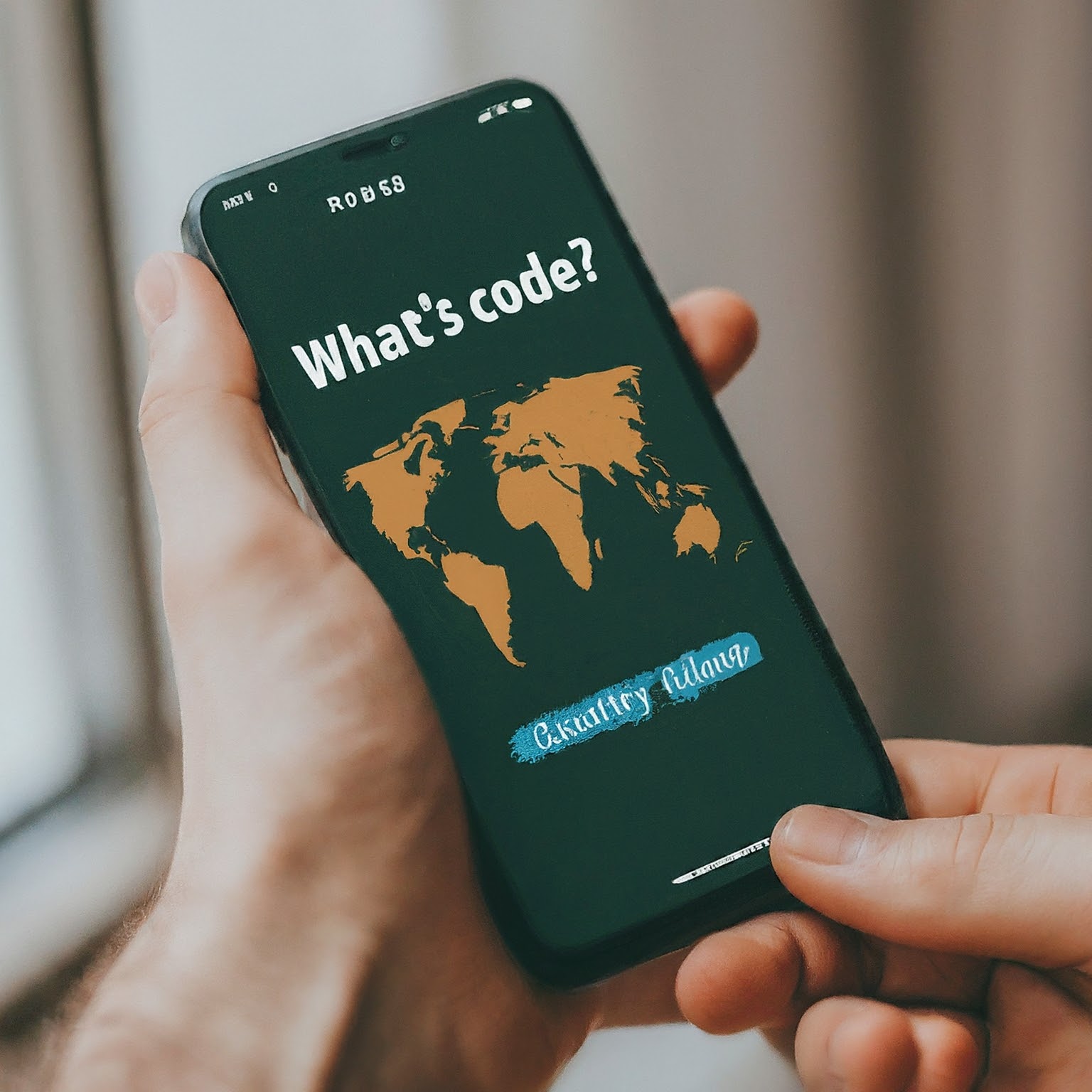A country code is a numerical prefix used to dial telephone numbers when making international calls. It essentially acts as a postal code for the world’s phone system, directing your call to the correct country. For instance, if you want to call someone in the United States, you’d typically start with the country code +1, followed by the area code and the local phone number.

The Role of the International Telecommunication Union (ITU)
The International Telecommunication Union (ITU) is the specialized agency of the United Nations for information and communication technologies. It is responsible for allocating country codes to different countries and regions worldwide. This ensures a standardized system for international communication.
Types of Country Codes
While the term “country code” is often associated with telephone numbers, it’s essential to recognize that there are other types of country codes used in different contexts:
- Telephone country codes: These are the most common type, used for international dialing.
- ISO 3166-1 alpha-2 codes: These are two-letter codes representing countries, commonly used in internet domains (.com, .uk, .fr, etc.) and other data processing applications.
- ISO 3166-1 alpha-3 codes: These are three-letter codes representing countries, often used in statistical and linguistic data.
- ISO 3166-1 numeric codes: These are three-digit codes representing countries, primarily used in machine-readable passports and other identification documents.
How Country Codes Work
When you make an international call, the process involves several steps:
- Dialing the exit code: This code varies by country and is used to access the international network. In many countries, it’s “00.”
- Dialing the country code: This is the number that identifies the destination country.
- Dialing the area code: This specifies the region within the country.
- Dialing the local phone number: This is the specific number of the person you’re calling.
For example, to call a number in the United States from a country that uses the exit code “00,” you would dial: 00 + 1 + area code + local phone number.
Importance of Country Codes in the Digital Age
Country codes have become even more critical in the digital age. They are used in a wide range of applications, including:
- International SMS and messaging: Platforms like WhatsApp, Viber, and others rely on country codes to identify users and route messages correctly.
- Online forms and registrations: Many websites require users to enter their country code for phone number verification or address validation.
- E-commerce and shipping: Country codes are used to determine shipping costs, applicable taxes, and currency conversions.
- Data analysis and research: Country codes are used to categorize data by geographic location for various studies and analyses.
Common Misconceptions About Country Codes
There are a few common misunderstandings about country codes that it’s important to clarify:
- Country codes are not area codes: While they both consist of numbers, country codes represent entire countries, while area codes specify regions within a country.
- Not all countries have three-digit country codes: Some countries, especially smaller ones, may have two-digit country codes.
- Country codes can change: While rare, it’s possible for a country’s country code to change due to political or telecommunications changes.
Finding Country Codes
If you need to find a country code for a specific country, there are several reliable resources available:
- Online country code directories: Numerous websites offer comprehensive lists of country codes.
- Your phone’s international dialing instructions: Many phones provide information on international dialing, including the country code.
- Your phone service provider: Your carrier can usually provide you with the correct country code.
Conclusion
Country codes are fundamental to international communication and have become increasingly important in the digital world. Understanding how they work and their various applications can help you navigate global interactions more efficiently.